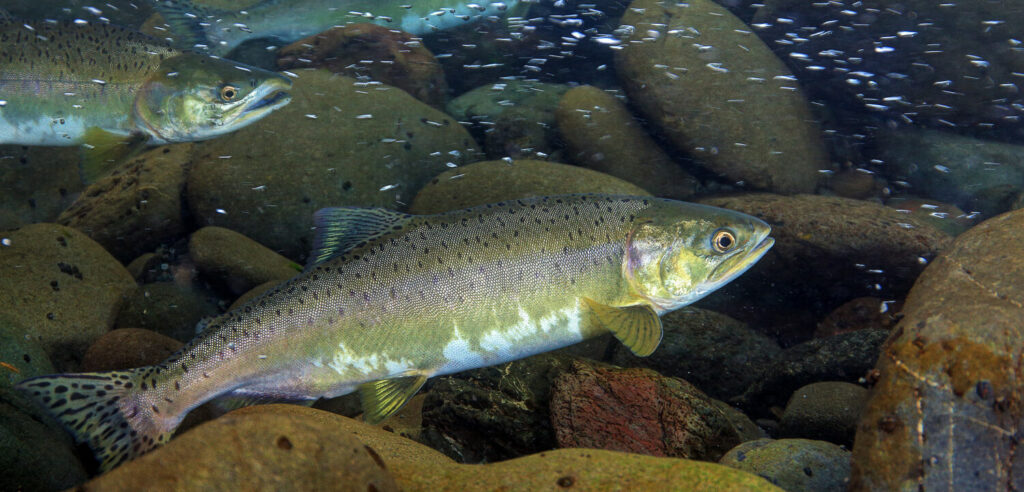After more than a century, a Native American tribe in northern Washington can finally fish for coho salmon in the same rivers as its ancestors, the Seattle Times reported — and it’s all thanks to the removal of two ecosystem-disrupting dams.
The removal of the dams comes after years of hard-fought environmental advocacy by members of the Lower Elwha Klallam Tribe to restore the tribe’s historic lands. As detailed by the Times, since 1911, two dams blocked nearly 90 miles of river and tributary habitat on the Elwha River in Olympic National Park. The dams obstructed more than 90% of the river’s natural flow, depleting salmon populations in the area and preventing the Lower Elwha Klallam Tribe from fishing the tribal waters.
Thanks to years of tribal advocacy, the removal of the dams began in August 2014 with the goal of replenishing the river’s waters and returning salmon to the Elwha River. However, it took nearly a decade for salmon populations to be healthy enough to fish.
“It’s been a long time coming,” Russell Hepfer, vice chairman of the tribe, told a crowd of more than 100 community members during the tribe’s first fishery in October 2023, per the Times. “The laughs, the joy we all feel in our hearts, is just tremendous. It’s historic.”
The tribe worked with a hatchery over the past several years to reintroduce salmon to the area, but the fish are now beginning to support their own populations. According to the tribe, more than 6,800 coho salmon returned to the river in 2022. Of those, about 36% spawned on their own and were not born in the hatchery.
A strong salmon population in the area is an exciting marker of the overall health of the natural environment after the dam’s removal, as salmon require a complex ecosystem to breed and thrive.
Yet, there’s still a lot of work to be done before the salmon population is as robust as it once was. A broad fishing moratorium on the river remains in place, preventing the public from fishing for salmon in the Elwha River. The Lower Elwha Klallam Tribe, however, is able to fish the waters for tribal use in an agreement with Olympic National Park and the Washington State Department of Fish and Wildlife.
Tribe member Vanessa Castle told the Times that she felt tribal ancestors were standing with current members during October’s inaugural fishery.
“This completely filled my spirit to be back on the water again, to be able to exercise my treaty rights just as my ancestors did and fought for,” Castle said. “It means everything to have that food security — to know that I can catch a fish to feed my family.”

